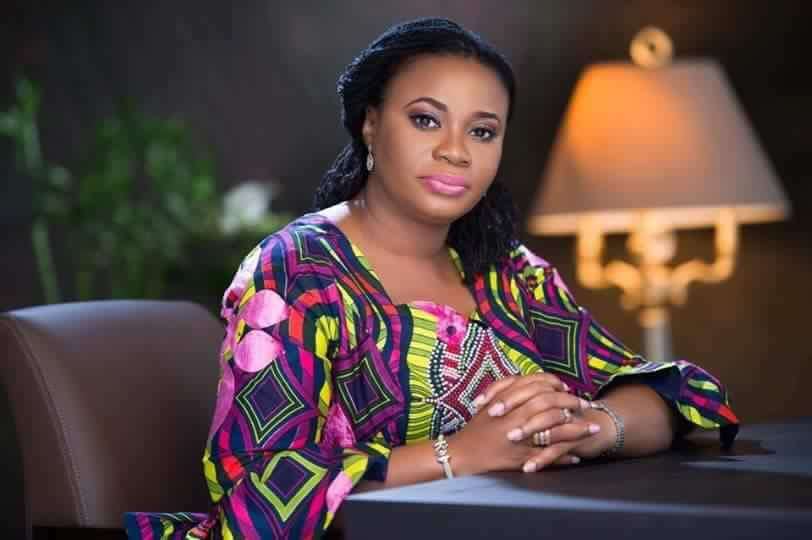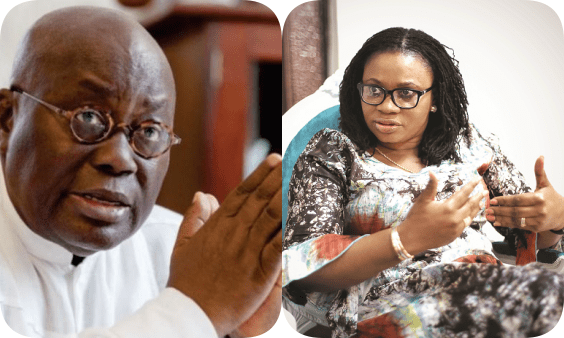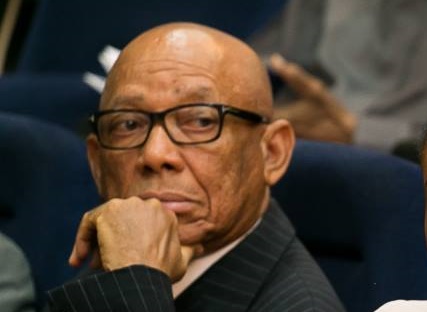Charlotte Osei to face committee in ‘corruption’ probe
- Posted on
- Comment
 A prima facie case has been established against the Electoral Commission Chairperson, Charlotte Osei, following allegations of corruption and abuse of office levelled against her in two separate petitions.
A prima facie case has been established against the Electoral Commission Chairperson, Charlotte Osei, following allegations of corruption and abuse of office levelled against her in two separate petitions.
Her two deputies, Amadu Sulley (in charge of Operations), and Georgina Amankwa (in charge of Corporate Services, will also have a case to answer for their alleged roles in the disappearance of some Ghc480, 000 from the Electoral Commission (EC)’s Endowment Fund, among other allegations.
The three top EC officials today [Monday], appeared individually before the Chief Justice in the company of their lawyers, at the office of the Judicial Service located at the Supreme Court.
Charlotte to answer for only 6 allegations out of 27
In the case of the EC Chairperson, Charlotte Osei, Citi News sources say out of the 27 allegations made against her, only six of them were deemed valid, for which she would have to answer before the committee.
A prima facie case is the establishment of a legally required rebuttable presumption, and a cause of action or defense that is sufficiently established by a party’s evidence to justify a verdict in his or her favour, provided such evidence is not rebutted by the other party.
Appointment of committee members
The latest development means that, the Chief Justice will be preparing to officially inaugurate a five-member committee which will have three superior court judges and two ordinary citizens as members.
The judges will be appointed by the Chief Justice in consultation with the Judicial Council, whereas the two ordinary citizens will also be appointed by the Chief Justice, in consultation with the Council of State.
The Chief Justice and the Judicial Council, may now recommend to the President of the Republic the suspension of the EC Chair from her position, to enable her undergo the hearing, who will either approve it or not.
Already, one of the deputies, Georgina Opoku Amankwa, is serving a suspension over the issues brought against her by the EC Chairperson, Charlotte Osei.
The Petitions
Some staff of the EC petitioned President Nana Addo Dankwa Akufo-Addo in July 2017, to remove Mrs. Osei from office over allegations of fraud and financial malfeasance as well as abuse of office.
Some of the allegations involved the unilateral award of contracts by the EC boss in the run-up to the 2016 general election.
The unnamed EC staff are being represented by Lawyer Maxwell Opoku-Agyemang, against Mrs. Osei.
The petition against her, alleged among others the funnelling of GH¢3.9 million to partition an office, the receipt of a Toyota Land Cruiser from the Mahama government, and the use of about $14 million when the Public Procurement Authority had authorized her to use only $7.5 million.
Amadu Sulley ‘illegally’ took GHC 6m from parties – Charlotte Osei
Mrs. Osei also responded by making allegations of corruption agaiants her deputies, claiming that she was only being hounded because she sought to introduce systems to curb misuse and mismanagement of resources.
EC Deputy Chair ‘illegally’ signed over GHC40m contract – Charlotte Osei
Charlotte Osei among others, accused deputy Chairperson of the Commission of illegally signing contracts worth over GHC 40 million without her approval.
Fresh impeachment against EC Chair
Subsequently, another individual by name Douglas Seidu, a concerned Ghanaian, also petitioned the President in August 2017, seeking the removal of the EC Chair, on grounds of “financial misconduct, incompetence, conflict of interest, breaches of the public procurement processes, amongst others. It is an eight-paged petition” according to the Director of Communications at the Presidency, Eugene Arhin, who spoke to Citi News in August.
President Akufo-Addo in accordance with the constitution forwarded both petitions to the Chief Justice to look into the matter.
Suggestions are that both petitions have been consolidated to make the committee’s work easier.
CODEO questions ‘silence’ on EC’s missing Ghc480, 000 endowment fund
The Coalition of Domestic Elections Observers (CODEO) recently expressed reservations about the silence of the agencies investigating the disappearance of money from the Electoral Commission (EC)’s Endowment Fund.
According to the Coalition, it is imperative that the country’s election supervisory body is free from any issues that might raise doubts about the EC’s integrity. Reports are that EOCO has concluded its probe into the matter, after the suspects were asked to proceed on leave.
The officials are the Commission’s Deputy Chairperson in-charge of Finance and Administration, Georgina Opoku Amankwah, Chief Accountant, Kwaku Owusu Agyei-Larbi and Finance Officer, Joseph Kwaku Asamoah.
Money not in officials’ accounts
EOCO revealed in September that, the money which went missing from the EC’s endowment fund did not end up in the accounts of the officials being investigated.
They however insisted that it was too early to conclude that the officials are innocent, given the mandate and access they had to the funds during the period.
Speaking to Accra-based Peace FM, the Executive Director of EOCO, K. K. Amoah, at the time, stated that, investigations were far advanced into the matter, and that they would submit their findings to the Attorney General very soon. “We are still on the case. I met with my colleagues and we noticed that, the money did not end up in the accounts of the officials, so right now it is missing,” he said.
“It is too early to conclude anyone is innocent because [Georgina Opoku Amankwah] was in charge of the Endowment Fund and [Asamoah] was the auditor at the time. In a few days, we’ll make our determinations.”
According to him, there have been claims that the money from the Endowment Fund was used for some projects for the EC, but he said no documents have been provided to prove this claim.
“It’s been suggested that the money was used for some work for the EC. If that’s the case, they should bring receipts and documents to prove it. We haven’t got any such documents from them. Without those documents, we’ll continue to pursue them. With time, we will pass the information on to the Attorney General to pursue the matter in court.”
–
By: Ebenezer Afanyi Dadzie










 (Selorm) |
(Selorm) |  (Nana Kwesi)
(Nana Kwesi)